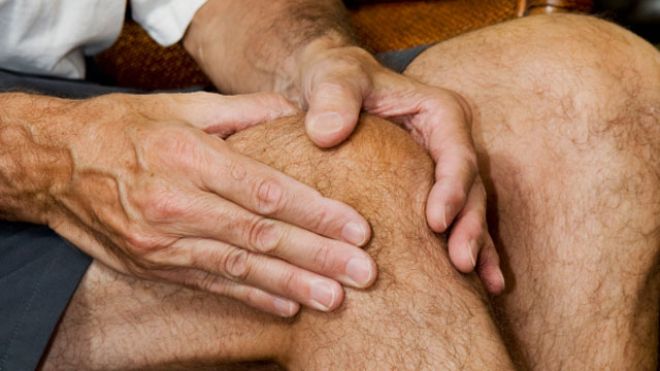Sugar water injections may help ease knee pain
Knee pain appears to decrease up to one year after “prolotherapy,” a series of sugar water injections at the site of the pain, according to a new study. Previous research on the therapy that suggested positive effects was plagued by flaws, but the new report may be more reliable, according to Dr. John D. Loeser, a pain specialist and professor emeritus at the University of Washington in Seattle. “This is a well-performed clinical trial that deals with many of the issues that have clouded prior reports of prolotherapy,” Loeser, who was not involved in the study and has spoken out against the practice in the past, told Reuters Health in an email. Knee osteoarthritis is common, especially among people over 65, but no single therapy has proven particularly beneficial. In prolotherapy, which costs $200 to $1000 per session and is not covered by Medicare, small amounts of solution are injected at multiple painful ligament and tendon locations in the knee over several sessions. The hope is that a new minor irritation will stimulate the body to repair both old damage and new. “The idea is to stimulate a local healing reaction,” lead author Dr. David Rabago, assistant professor at the University of Wisconsin in Madison, told Reuters Health. Rabago and his colleagues divided 90 people with knee osteoarthritis and between ages 40 and 76 years old into three groups: one got sugar-water prolotherapy injections, another got salt-water placebo injections, and the third was instructed in at-home exercise and received no injections. The first two groups got injections at least three times, sometimes more if they asked for it, over 17 weeks, and were followed for one year. The sugar water group reported better knee function, improving 16 points on a 100-point scale of osteoarthritis severity, compared to 5 points for saline and 7 points for the exercise group. The sugar water group also reported less frequent and less severe pain, improving 14 points on the same scale, at one year, while the salt water and exercise groups improved 7 points and 9 points, respectively. The study was small but not too small and included the right type of subjects: typical sufferers of knee osteoarthritis, researchers said. One of the things that has held back previous studies of prolotherapy is the difficulty of mimicking the injections for a placebo group without actually injecting them with something - that makes it difficult to tell what's causing the improvements, the sugar water itself or the needle stick, bleeding or stretching the tissue, which can all have effects. “The best one can do is ‘control' for those effects by testing an agent against a similar treatment and varying only one thing, which is what we did,” Rabago said. But since the salt water group and the exercise-only groups had similar results, the benefit was probably not a placebo response, Loeser said. “This study yields results that are more favorable than other carefully controlled studies of prolotherapy in other regions,” Loeser said. But there are a lot of questions to answer before this becomes widely adopted, he cautioned. “Certainly, additional studies are needed before one accepts prolotherapy as standard treatment for knee OA,” Loeser said. Researchers don't yet know how long the pain benefit will persist after one year. But Rabago said, “These results support its use as routine care for knee OA in patients who have not improved with more conservative measures.” Though he doesn't yet know how prolotherapy works, he added that he would recommend the treatment for a member of his own family.source : http://www.foxnews.com/health/2013/05/24/sugar-water-injections-may-help-ease-knee-pain/

